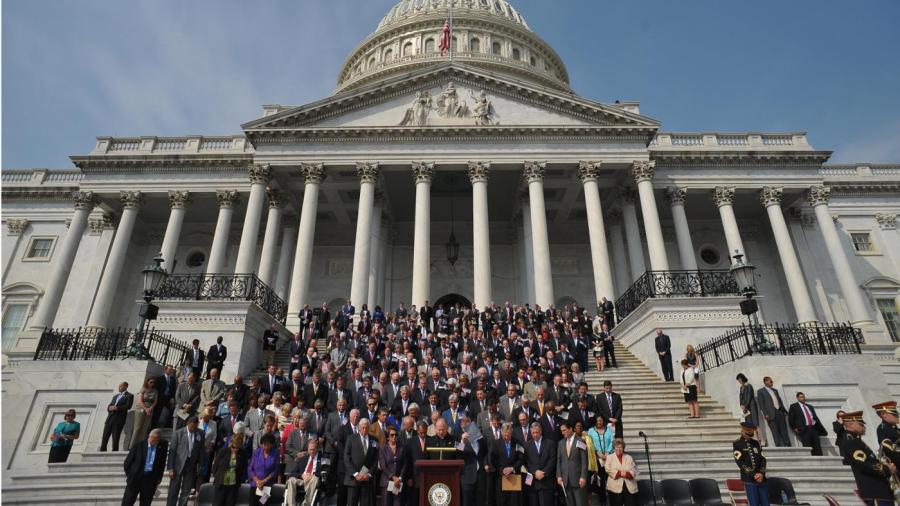What Are Four Examples of the Elastic Clause?

Four examples of the Elastic Clause are Congress creating taxes, declaring war, issuing money and balancing states’ rights with the power of the federal government. The Elastic Clause, also called the Necessary and Proper Clause, grants Congress the ability to perform several duties essential to the operation of the United States, including having oversight in issues of domestic and international affairs. The Elastic Clause gives Congress essential responsibilities, such as creating money, which impacts citizens and businesses on a daily basis.
The Elastic Clause exists as Article I, Section 8 of the U.S. Constitution. It sets forth the specific powers granted to Congress, called enumerated or expressed powers. Enumerated powers allow Congress to make decisions that affect the health, safety and well-being. The Elastic Clause does not specify all powers of the government, but grants Congress the ability to perform acts using other powers not expressly enumerated in the Constitution. While these powers raise some issues on the authority of Congress to act or not act on certain issues, delegated powers do not. In addition to finances, delegated powers allow Congress to decide which wars and battles to engage America in, and allows Congress to establish a balance of power across the different areas of federal government.





